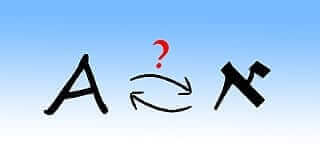|
Translating a text to Hebrew or to any other language may lead to a large number of different versions. That’s because explaining, understanding and translating a language are subjective in nature and change from person to person, among other reasons due to their worldview, their vocabulary and their manner of thinking. As a result, translating a text is careful work that demands that a translator take their time and consider a broad range of options, interpretations and meanings. Furthermore, translating to Hebrew is considered particularly difficult, due to it being a new language that is different from other commonly-used languages. In order to make translation easier and more precise, uniform and correct, there are a number of accepted basic rules for translating texts to Hebrew Complexity of Translating Texts to HebrewIt’s important to understand that 20th-Century Hebrew is a completely new language, which is not identical to ancient Hebrew. In fact, this is a dynamic language whose style is constantly changing, and with significant differences between the written and spoken language. Therefore, unlike the basic stability of older languages, translation to Hebrew, like the language itself, is constantly changing and updating. Beyond that, the Hebrew language’s roots are Semitic and are fundamentally different from the Latin and Germanic languages common in the western world. For instance, Hebrew is written from right to left and not from left to right, and unlike English, adjectives in Hebrew are written in the singular or plural form after the noun. In addition, in Hebrew there is a distinction between male and female, which often does not exist in the original language. Style Rules in Translating to HebrewThe basic rules for translating a text to Hebrew are made up of subjects that relate to the writing style, which needs to be based on the modern official language and be clear and easy to understand. This is done by using language that isn’t of too high a register but isn’t too common, and does not involve the use of slang. As such, a high register will only be used when necessary and in accordance with the translated text. For instance, when translating, the phrase “all right” will be used, instead of the slang term “Okay”. In addition, due to the difference in linguistic structure between Hebrew and other languages, it is not necessary to insist on it being identical to the source, but rather it must be adapted to Hebrew grammatical structures. Furthermore, use of descriptions with multiple meanings should be avoided, in order to prevent lack of clarity among readers. Hebrew Grammar RulesBesides stylistic rules, translating a text to Hebrew also consists of instructions relating to the proper use of existing rules of grammar. For instance, these rules apply to the proper use of the letter “yod” in the presence or absence of vowel marks. Rules of Punctuation in Translating to HebrewAn important part of the craft of translating text to Hebrew consists of the use of accepted punctuation marks. So for instance, proper gaps must be kept between words and punctuations, and dashes should be used as little as possible. However, quotation marks and dashes are used for acronyms, rather than periods. Basic Rules of Ethics in Translating to HebrewBesides the rules of language, when translating a text to Hebrew, a professional translator must also follow the rules of ethics. These rules include a commitment to provide high quality translation work, translation to Hebrew only from foreign languages the translator has a full command of at a mother tongue level, and only in areas in which they have an in-depth understanding and knowledge of both languages. Beyond that, a professional translator is committed to maximum fidelity to the original text and to its messages. Therefore, it is important to select a professional translator who knows and is committed to the basic rules of translation. |



